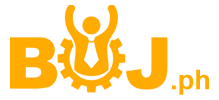How to Successfully Plan Your Career
Planning your career ahead of time isn't something you do only once in your life, but a constant task which must be done on a regular basis at different points in your career. It is not like how things used to be back in the olden days, career planning was something that was done only once - when in college or high school - and it was uncommon for individuals to switch careers. Now, many professionals change jobs on a regular basis and need to stay ahead of others of the most recent employment news and career styles. Keeping this in mind, here are the top career planning tips
Be clear about your targets and your career aims - Develop a clear path for your profession and establish an incredibly unique set of goals and career purposes. Your goals should be achievable and realistic and should be a mix of short term and long term goals. Keep changing and reviewing your targets based on the present facts once the other aims are achieved and establish new goals.
What are your achievements? Make a note of your previous results. This will allow you to develop a better resume and helps with your career planning too. Frequently, we have a tendency to undervalue our accomplishments and even forget all about them over time. Maybe reviewing a previous achievement will disclose the secrets that are hidden to future career success. Monitor your results and leverage them as fast as possible.
Don't just settle for only the job titles - for many individuals, a career is just about a series of job titles with one succeeding another. That strategy may have worked previously, but job titles are not that important any longer. Jobs that are advertised now need a unique set of skill sets. Lots of careers now have skill sets that are transferable - a reporter, as an example, can quite readily be a best-selling non-fiction writer because both professions have transferable skill sets including studying, writing, editing, and interviewing. So the focus of your career planning should be on the best way to build or develop particular skill sets, and not always on the best way to go from one job title to another.
Expand your career opportunities - The last decade and a half have found many new careers come to the fore and lots of older ones becoming irrelevant. As a professional, you should create your career opportunities by yourself, learn new skills that are marketable and have your own unique selling proposition. For this, you will need to be always updated on the latest employment news and the fast changing trends in the job market.
Have you got amazing skills with Photoshop? Why not turn your hobby into a career? Are you aware that there is a tremendous demand for logo designers, talented web designers or graphic designers in the business now? There are several skills like that which many people consider to be more than a hobby for which there is lots of demand in the market.
Every year plan your career - Dedicate a whole weekend at the start of each year to career preparation. Make sure you are not distracted and have all the time to concentrate on what you need out of a career and your life. Design how you would like your career to look like. Ask yourself if you have a need for a change and if you're ok with the direction it has taken. Is there anything which you could have done better, or otherwise? Be objective with your evaluation.
Make a sincere list of your biggest likes and dislikes about your career - one thing that is constant in life is change. As far as this life is involved, things change and so does our likes and dislikes. List out what you hate about it and what you enjoy the most about your job. Do you enjoy your job? Then you're on the right path to your career success. If you don't love your job and it seems you're not making any progress at it, then, it's high time, you made a career change
Stay Informed- Prepare yourself and constantly seek to learn new things. There is no telling when a new chance can come your way due to the things that are new - skills that are marketable - that you've learned. Keep yourself up to date with the changes in technologies in your preferred area.
In conclusion, one of the most famous questions that prospective candidates are asked during a job interview is, where do you see yourself in 4 years? That's exactly the same question you should be asking yourself right now. A lot of things can happen in 4 years. As long as you have a clear plan of your career, you should be prepared for whatever comes your way.

